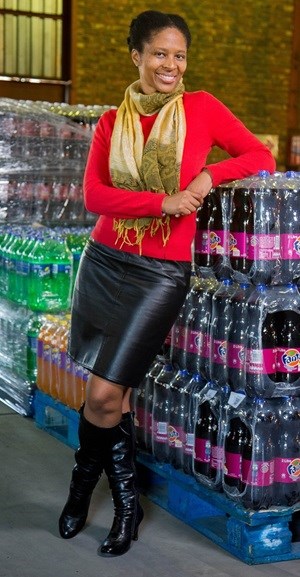
Top stories






More news














Getting one’s product to market reliably and cost-effectively is critical for any business, specifically in the FMCG space. “Small-scale orders from independent stores in outlying areas can prove challenging in this regard – something we see across South Africa,” notes Curnick Tshongweni, CCBSA Logistics Specialist: National Third Party. “Finding efficient ways to deliver to these areas often requires innovative solutions that involve the community themselves. This was the approach we decided to take when first looking for ways to get our product into the townships viably about five years ago.” The company’s Market Logistics Partners (MLP) programme was the result.
Started in 2011, the MLP programme recruits young, upcoming entrepreneurs looking for opportunities in their communities, and empowers them to become “logistics partners” to CCBSA. This involves helping them to create sustainable standalone delivery/courier businesses – with CCBSA initially one of their anchor customers.
“In order to gear the businesses for success, we created our own enterprise development programme and toolkit which we share with these entrepreneurs. This ensures we help them build appropriate capacity and gear them for the responsibility of owning their own companies,” explains Tshongweni.
The training and support programme includes customer service training, stock management lessons, IT systems training and financial literacy training for the MLPs. This ensures that they gain the skills and knowledge they need before entering into a contract both with CCBSA and other future clients. A third party distribution manager then continuously coaches and trains the MLP owner to ensure that they receive the support they need to build a successful SME.
Pulane Moraladi, an MLP in Carletonville, completed CCBSA’s support and training programme in October 2015. “The programme showed me which systems I needed to put in place to make my business a success, how Macmobile and SAP work and to always focus on sustainability,” says Moraladi. “I’ve also learned so much from my fellow MLPs who have shared many of their own learnings and experiences with me.”
To date, over 90 MLPs have been contracted to CCBSA, creating over 1,300 job opportunities in their respective communities. “Each of these small businesses employs an average of 13 staff members,” says Tshongweni.
The impact of the programme extends beyond employment, however, with the MPLs collectively earning approximately R300 million from CCBSA annually, and the company investing over R1.7 million in the entrepreneurs’ training and development each year. “As such, it’s not only demonstrated the difference that a partnership approach can make in communities but the strategic value that it can add to an established business model such as ours,” he notes. “We look forward to growing the programme and partnership with these entrepreneurs well into the future, and seeing them continue to thrive.”